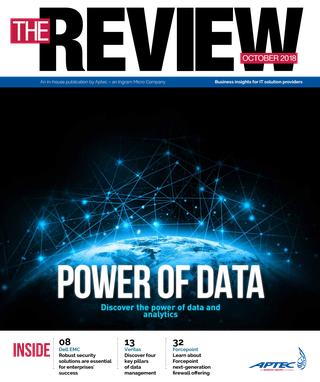
Samer Semaan, Value-Add Distribution Manager, UAE & Gulf at Dell EMC, urges regional enterprises to invest in robust security solutions to have a better handle on security strategies.
How can customers protect their data and be prepared for the new risks that digital transformation and 4th industrial revolution brings?
If your security strategy fails to keep pace with your enterprise, business risk increases. Many companies understand the need to protect their information where it’s stored, but if it not protected when shared or used, you’re still opening yourself up to the risk of disastrous and expensive breaches, especially in this hyper connected era. To this end, we believe that it’s imperative that organizations design their security program to implement a combination of solutions that address security awareness, enablement and protection among the workforce. If organizations are going to keep their critical assets truly safe amid an ever-evolving threat landscape, they need clear protocols in place that are backed by a realistic understanding of employees’ day-to-day responsibilities, as well as technology that protects sensitive data wherever they go – whether at rest, in motion or in use.
Can the implementation of GDPR pave way for regional regulations on data protection?
Definitely. The regulation builds on the previous legislation, but provides more protections for consumers, and more privacy considerations for organizations. It puts an onus on businesses to change their mindset on data protection. Most importantly, under GDPR, it is important that an organization implements appropriate technical security measures, such as, encryption of personal data.
What are the current challenges regional customers face when it comes to data protection?
Challenges the industry faces is not a technology problem but a mindset problem. This is because companies employ security strategies and solutions that no longer map to the business and threat environment we face. For instance:
Most companies have some sort of data privacy plan, but it’s usually a component in a broader disaster recovery or business continuity strategy. It may be a dedicated chapter or a few isolated passages in that plan document. In reality it needs to be imbued in all aspects of business continuity in real-world practice. Unfortunately, business continuity plan documents often act as shelf ware that is rarely tested and updated to reflect changes in business conditions.
Data defenses are termed as an additional cost and not a strategic investment. Measuring the economic impact of a breach goes far beyond regulatory penalties or the cost of securing defenses.
Lastly, organizations still battle the age-old situation of ‘not in my backyard’ mentality. As a result there has been plenty of anecdotal evidence that companies tend to delay investments in data security until they experience the pain first hand.
To sum it up, organizations need to bolster data protection and security strategies by investing in technologies that help integrate security components in all devices, products and applications to safeguard the most important asset to a company – information.
How does Dell EMC assist customers with these challenges and enable partners to make the most of the market opportunities?
At Dell EMC, we develop security solutions that drive business value by: connecting the business context with threats to defend more quickly and efficiently than ever before; ensuring our customers are better informed through superior threat intelligence, analytics and shared expertise; and using a better command of risk posture to deliver predictable business outcomes.



